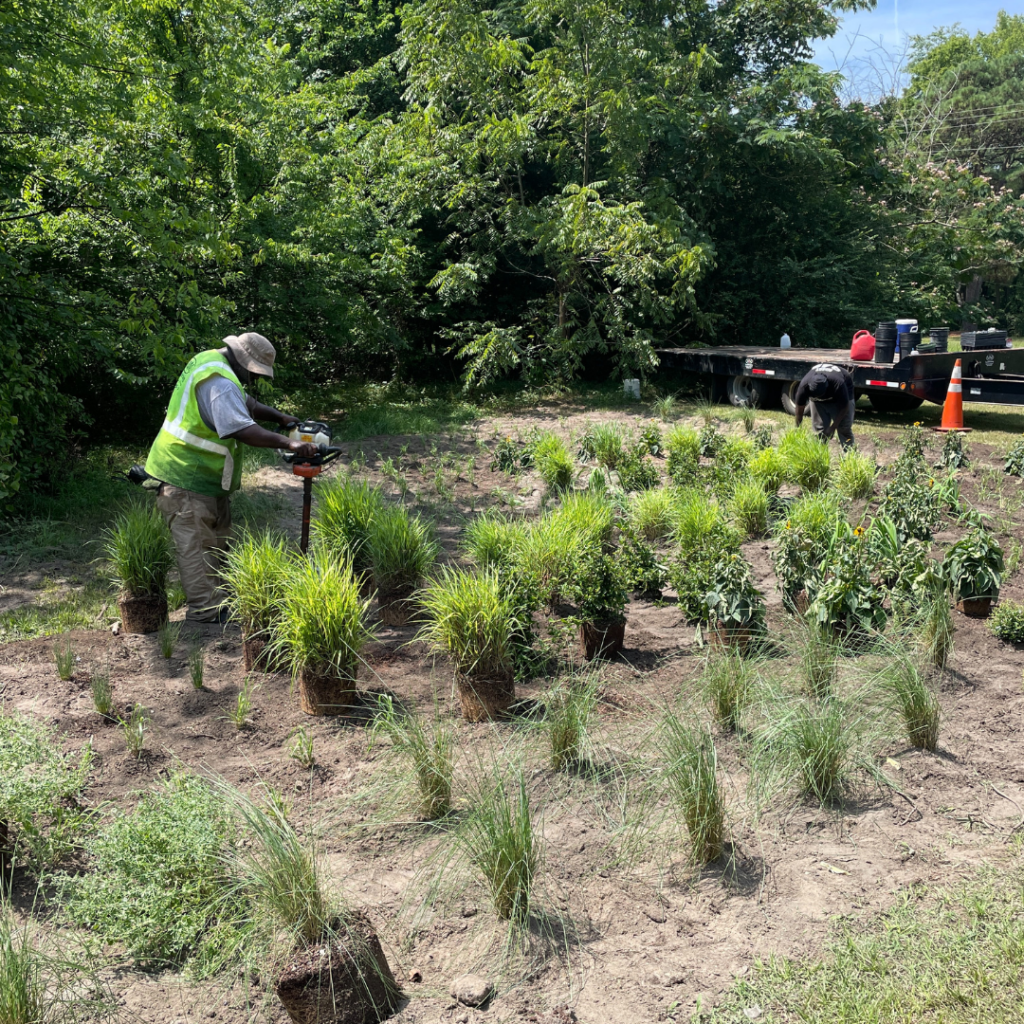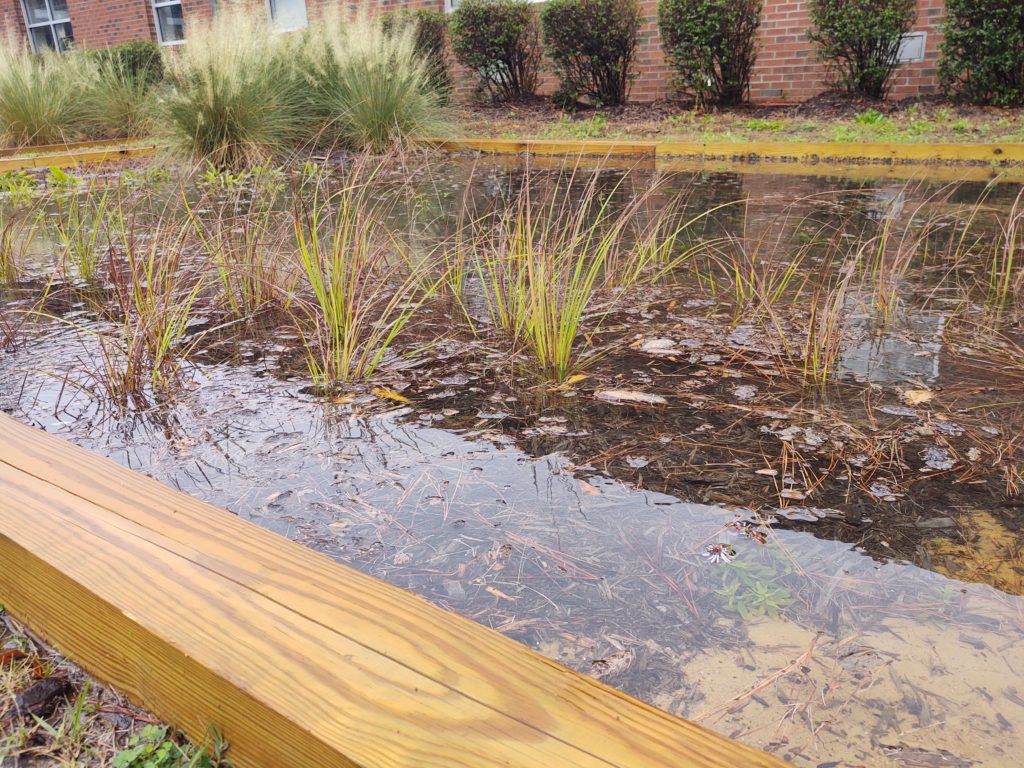Stormwater interventions offer climate solutions
As communities experience increasingly heavy rainfall, communities across North Carolina are experiencing nuisance flooding. Instances of standing water can disrupt routine day-to-day activities, put added strain on infrastructure systems such as roadways and sewers, and cause minor property damage.
The town of Princeville knows that well, as do many climate-impacted towns in North Carolina. A spot of historic and devastating flooding as well as every-day challenges resulting from nuisance flooding, this town invested in building natural stormwater capture devices while enhancing once-vacant land throughout the community.
In the summer of 2023, CTNC spearheaded a project to install green infrastructure with wetland enhancement projects on vacant, town-owned parcels along the Tar River. These are now sites where stormwater can naturally flow and reduce nuisance flooding that causes inconveniences to residents, roads, and neighborhoods in populated areas. The project created 6,000 square feet of stormwater retention strategies, including bioretention cells and rain gardens designed to hold 27,740 gallons of water per rain event.
Princeville elected leaders worked with residents and partners to identify three locations throughout town where standing water was already creating safety hazards following large rain events. By turning these sites into managed wetland areas with trees, shrubs, and pollinator plants, each site can now absorb stormwater and address standing water issues. This is all while beautifying each plot with seasonal colorful blooms and leaves, supporting native wildlife, including birds and other pollinators.
GARDENS ARE READY TO BLOOM

Site 1 is located at Town Hall and Freedom Hill to help add stormwater runoff at a high-traffic intersection of Princeville. The site includes NC native pollinator plants including Soft Rush, Walker’s Low Catmint, and Black-eyed Susan.
Site 2 is located at the corner of Church and Walston Streets, and Site 3 is located at the corner of Beasley and Walston Streets. These locations were selected due to their proximity to the elementary school rain garden installations completed in 2020.
The project is continuing with an important science component. The Town of Princeville seeks to incorporate community education into every conservation project that takes place. In the case of the stormwater infrastructure improvements, CTNC received funding from TELUS to purchase sensors that track the water absorption rate of the wetland areas. These sensors are offered by Temboo, a technology company that utilizes data to engage communities in understanding their environmental impact locally. The sensors will be installed this summer and will collect data that will be shared with town leaders, educators, students and families to showcase the importance of conservation as a natural solution to flooding and other climate-related issues being experienced by Princeville and surrounding communities.
RAIN GARDENS & WETLAND ENHANCEMENTS OFFER A CLIMATE SOLUTION

Communities across North Carolina are experiencing greater occurrences of precipitation and rain events that cause minor and major flooding. Conservation solutions, like installing rain gardens and other stormwater management techniques, are a great way to manage flood water while benefiting communities and residents. These types of installations are beautiful, offer a benefit to wildlife like birds and pollinators, effectively manage stormwater, naturally filter contaminants from water flow before it reaches a river or stream, and are low maintenance options for long-term care. CTNC supports natural solutions like stormwater infrastructure to benefit communities seeking to build resilience to flood challenges exacerbated by our changing climate.
The stormwater designs and plant selections were created by NC State Coastal Dynamics Design Lab based on recommendations from the Princeville Community Floodprint. It was informed by input from Princeville residents and approved by the Town of Princeville Board of Commissioners. The project will be installed by M&M Landscaping – a local contracting partner participating in the conservation projects being funded through CTNC.
Funding for this project was generously provided by the Commission for Environmental Cooperation EJ4Climate grant.

